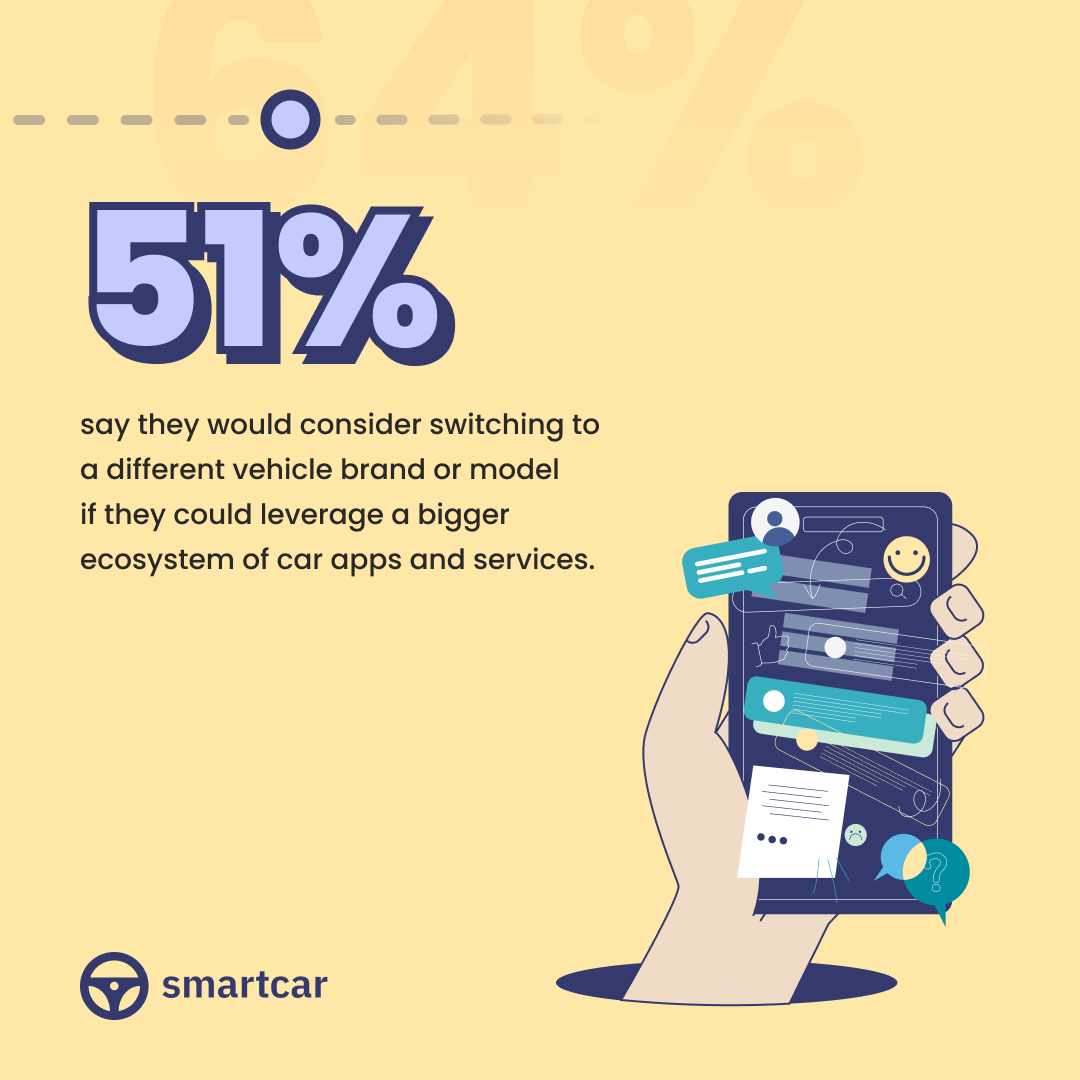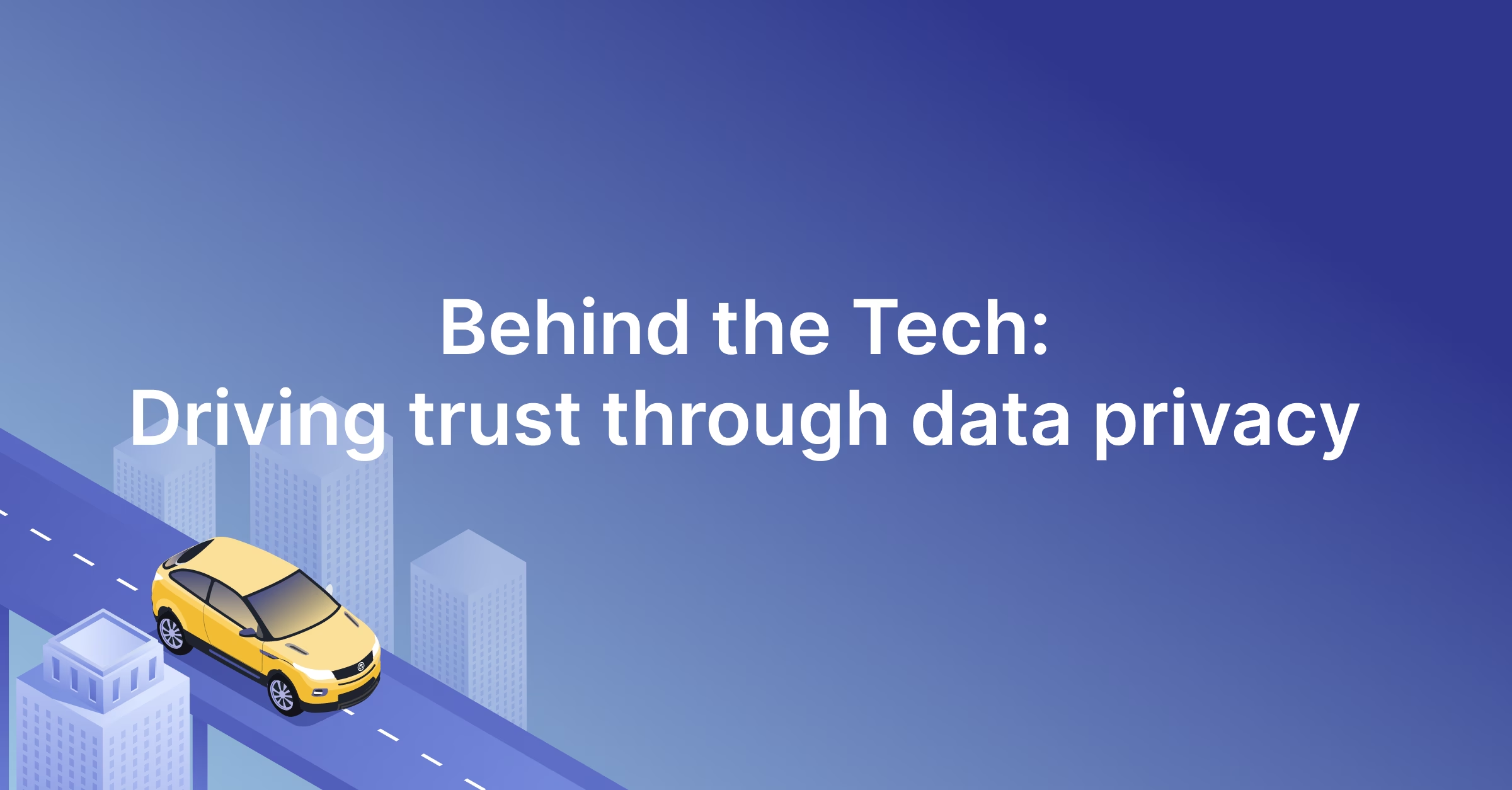Automotive innovations add imminent value to the consumer experience when they’re intuitive, personalized, and built to solve tangible user problems.
For example, usage-based insurance solutions became more prevalent during the pandemic. Americans drove 14% less in 2020 than the year prior but only saved about 6% on their car insurance. Access to accurate mileage data through vehicle telematics expedited the roll-out of pay-per-mile policies that can save drivers up to 9% in insurance costs.
The same can be said with the accelerated emphasis on EVs as a distributed energy resource, especially after millions of residents were forced to deal with power outages during extreme weather events because of heightened grid dependency.
From using vehicle data to reduce the cost of unnecessary repairs to unlocking more shared mobility options for those who can’t opt for personal vehicle ownership, the possibilities for more safe and accessible mobility are endless when consumer needs come first.
Putting consumers in control
We believe it takes a collective effort to effectively share automotive data while prioritizing driver needs and maintaining vehicle manufacturers' brand integrity.
About five to ten years ago, the automotive industry viewed selling anonymized vehicle data as adequate in preserving driver privacy while being the path to value and monetization. However, it soon became clear that true anonymization is impossible. Challenges in establishing transparency when selling and sharing data have resulted in unintended consequences for consumers — like involvement in data breaches, or higher insurance rates caused by inaccurate data collection and risk assessments. These negative impacts affect overall trust in an automaker’s connected services, angering drivers who did not have a choice over how and when this data was retrieved.
It’s clear that having connected car data is only part of the solution to building a more agile and forward-looking mobility ecosystem. To effectively use this data, we need to move beyond unrestricted access to driver data.
Implementing consent management is crucial for using connected car data responsibly. This approach is already a standard across industries like healthcare and financial services.
Consent management is fundamental to the open banking ecosystem. Regulations by the US Consumer Financial Protection Bureau and the European Union require financial institutions to open up data to third parties by implementing consent management mechanisms. With this in place, consumers can opt out of data sharing at any time and clearly identify how their financial data is being used.
More US states are also including consent collection and management as part of their privacy laws for healthcare providers and HealthTech solutions. More recently, the state of Washington passed the ‘My Health, My Data’ bill that requires companies to get explicit consent before collecting, sharing, or selling health data.
Since 2015, Smartcar has focused on user-consent and user-permission-based models, providing transparency and enabling informed consumer decisions about privacy in mobility. By protecting high-quality data with a robust consent management infrastructure, automakers and mobility service providers can build a mutually beneficial ecosystem of solutions that put drivers first.
A consent management system enables trust
Drivers are at the forefront of policies around connected car data. As vehicles become more connected, there is increasing scrutiny on the levels of ownership and control vehicle owners should have over the sensitive data generated while they move around.
Consent management requires drivers to provide explicit permissions to use this data for any purpose. For a driver to give these permissions to an automotive application or service, they must be able to see what data they’re sharing, what service or application has access to this data, and how the data will be used.
Automakers and automotive applications need a neutral platform that facilitates effective consent management with the following requirements
- Industry-standard authorization protocol (like OAuth 2.0) which establishes requirements for granting access to user data on another platform.
- API tokens management systems that enable secure data transfers without drivers having to share their connected services login information with another party.
- A permissions screen that clearly defines the specific data points for specific purposes — not a blanket "agree to all" option or text buried within pages of terms and conditions.
- Easy opt-out for users to withdraw consent at any given time.
Let drivers choose the value they get from connected car data
Consumers see the value of connected car data when it’s aligned with how consumers want to use it. In our 2023 State of Connected Car Apps report, we found that 57% of respondents wanted automakers to collaborate with external developers and solution providers to build new software services. In fact, 51% said they would even switch to a new vehicle brand if it would give them access to a bigger ecosystem of mobility apps and services.

Every day, thousands of drivers onboard their vehicles to connected car applications via the Smartcar API. These are vehicle owners who consent to share their data with specific applications that impact the cost, safety, comfort, and sustainability of their mobility choices.
What does that look like in real life? Here are a few examples.

Consent management addresses key concerns policymakers and consumers have with the state of vehicle data sharing today:
- Consumers not knowing that they are sharing information with third parties.
- Consumers who are negatively affected by the data they did not know they were sharing.
- Consumers not being able to opt out of data sharing because they don’t know that third parties have their data.
A consent-driven approach to connected car services allows automakers to enable consumer choice by prioritizing transparency and control.
Collaboration in the automotive industry helps everybody win
New policies in North America and Europe reflect the heightened scrutiny on data privacy and consent management. For example, the American Privacy Rights Act (APRA) will require companies to give consumers rights over their data, enable visible opt-out processes, and ensure data access is restricted only to specific use cases.
Automakers and automobility service providers will have to respond to these developments by shifting their data-sharing processes toward a user permission model. It’s not impossible, but it is difficult to tackle a comprehensive consent management system alone.
Smartcar bridges existing gaps in the user permission model by acting as a consent management platform bridging consumers to telematics data in a way that provides value to all parties. We help automakers stay compliant with regulatory requirements by enabling them with technology that gives consumers easy, safe, and transparent access to their vehicle data.
By adopting consent management through Smartcar, everybody wins:
- Vehicle owners will gain control and transparency over their vehicle data
- Mobility businesses will successfully innovate and grow their business with secure access to vehicle telematics data across automotive brands.
- Automakers will tap into the value of an extensive ecosystem of mobility applications, boosting connected services utilization and brand loyalty.
Maximize data control and transparency with consent management
Easily manage vehicle data consent with our industry-leading consent management platform, Smartcar Connect. With Smartcar Connect automakers can seamlessly integrate this pre-built consent management functionality into their own consumer apps and services. This ensures that consent remains explicit, easy to view, and easy to update – enhancing user trust and compliance across the board. Contact us to learn how you can add consent management to your solution.




.jpg)

